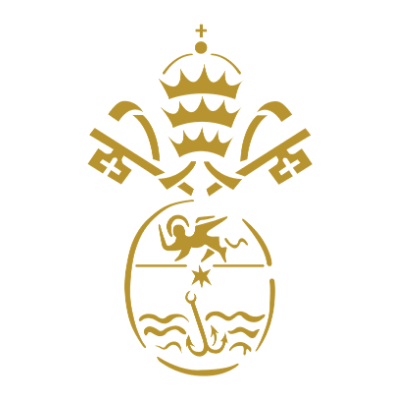What is “ecological conversion”?
The term ‘ecological conversion’ was coined by Pope John Paul II at his General Audience of Wednesday, 17 January 2001 in a talked entitled ‘God made man the steward of creation’. https://www.vatican.va/content/john-paul-ii/en/audiences/2001/documents/hf_jp-ii_aud_20010117.html
His Holiness elucidates how human beings were created in the ‘image of the God’ [Gen 1:27], and given ‘dominion’ over all the other-than-human creatures. [Gen 1:28]. However, instead of recognising that ‘dominion’ is ministerial [stewardship] in essence – for God alone is Lord of heaven and earth – human beings ‘lorded’ over God’s creation to the extent that the original relationship between humankind and God became one of great conflict that extended to fellow human beings and even the natural world. [Gen 3 – 11] Pope John Paul II refers to the Book of Wisdom where we can read that the vocation of human creatures is to rule “the world in holiness and justice.” [Wis 9:3] Yet, unfortunately,
“…if we scan the regions of our planet, we immediately see that humanity has disappointed God’s expectations. Man, especially in our time, has without hesitation devastated wooded plains and valleys, polluted waters, disfigured the earth’s habitat, made the air unbreathable, disturbed the hydrogeological and atmospheric systems, turned luxuriant areas into deserts and undertaken forms of unrestrained industrialization, degrading that “flowerbed” – to use an image from Dante Alighieri (Paradiso, XXII, 151) – which is the earth, our dwelling-place. We must therefore encourage and support the “ecological conversion” which in recent decades has made humanity more sensitive to the catastrophe to which it has been heading. Man is no longer the Creator’s “steward”, but an autonomous despot, who is finally beginning to understand that he must stop at the edge of the abyss. “
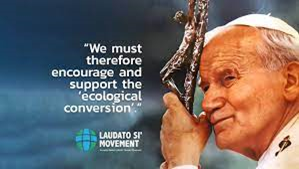
What does His Holiness mean with an “ecological conversion“?
“At stake, then, is not only a “physical” ecology that is concerned to safeguard the habitat of the various living beings, but also a “human” ecology which makes the existence of creatures more dignified, by protecting the fundamental good of life in all its manifestations and by preparing for future generations an environment more in conformity with the Creator’s plan.”
Pope Francis points out in his Message that Pope John Paul II idea of an ‘ecological conversion’ was influenced by the words of his predecessor, Pope Paul VI, on his visit to Food and Agriculture Organisation [FAO] on 16 November 1970 – the occasion of its 25th anniversary.. https://www.vatican.va/content/paul-vi/en/speeches/1970/documents/hf_p-vi_spe_19701116_xxv-istituzione-fao.html
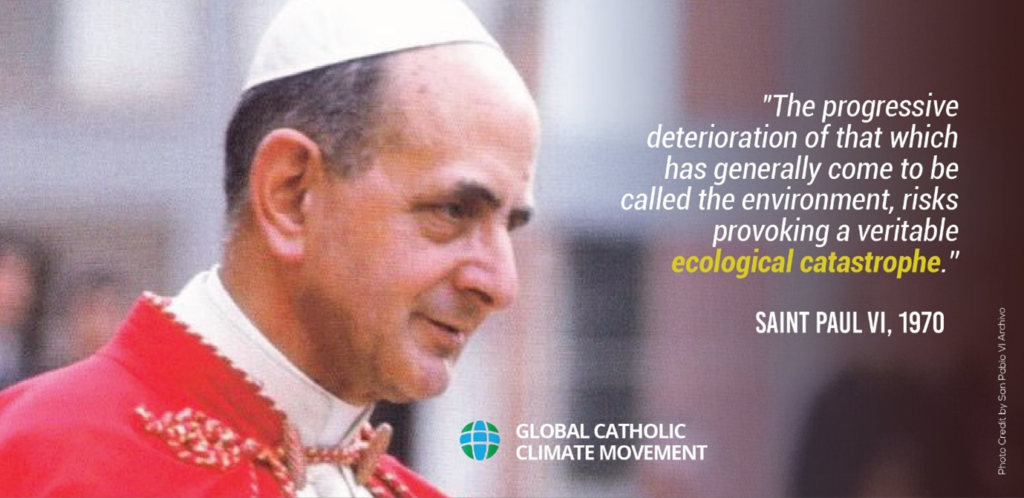
While Pope Paul VI paid tribute to the numerous FAO campaigns against hunger, he could not avoid asking the vexed rhetorical question: “By what means do you intend to attain these goals, which we approve with all our heart?”
Even as His Holiness expressed recognising the great complexity of activities that is required in the FAO’s world-wide campaigns against hunger, such as a ‘more intelligent utilisation of basic physical resources, a better use of land and water, forest and oceans….’, he warned of an impending ecological catastrophe for the natural environment in especially socially unequal societies: “At the same time nutritional needs grow under the double pressure of a demographic increase …. and of a consumption whose graphic curve follows the progression of income. The improvement of soil fertility, the intelligent use of irrigation, … the reclaiming of marshes, the effort at plant selection…almost seem to fulfil the vision of the ancient prophet of the agricultural era: “The desert shall rejoice and blossom.” [Is. 35:1].
But the carrying out of these technical possibilities at an accelerated pace is not accomplished without dangerous repercussions on the balance of our natural surroundings. The progressive deterioration of that which has generally come to be called the environment, risks provoking a veritable ecological catastrophe.”
Thoughts on an ecological conversion and its urgency
Laudato Si’ encyclical #217: “The external deserts in the world are growing, because the internal deserts have become so vast”. [Benedict XIV, 24 April 2005] For this reason, the ecological crisis is also a summons to profound interior conversion. [Some Christians] are passive: they choose not to change their habits and thus become inconsistent…. they need an ‘ecological conversion’ whereby the effects of their encounter with Jesus Christ become evident in their relationship with the world around them.
The Laudato Si’ Movement: “[Ecological conversion]…is the transformation of hearts and minds toward greater love of God, each other and creation. It is a process of acknowledging our contribution to the social and ecological crisis and acting in ways that nurture communion: healing and renewing our common home.”
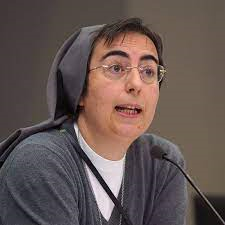
How can we undergo ecological conversion?
The first step of any conversion is the acceptance that: “Conversion is first of all a work of the grace of God who makes our hearts return to him.” [CCC#1432] Through the power of God’s holy Spirit our “human hearts [receive] grace for repentance and conversion.” [CCC#1433]
The Catechism of the Catholic Church [CCC] elucidates how conversion can be accomplished in daily life. [CCC#1435]
Relevant for an ‘ecological’ conversion could be the following four steps recommended by the Laudato Si’ Movement, and informed by CCC#1435
Step 1: We need to recognise that we have harmed God’s creation
“…we must examine our lives and acknowledge the ways in which we have harmed God’s creation through our actions and our failure to act.” [LS 218]
HOW? We can read scientific reports such as ‘The Living Planet Report’, the WWR’s flagship publication. We can review our own consumption habits regarding food waste and loss and assess whether we take responsibility for our own waste by visiting our parish Justice & Peace webpage, foundon the home menu bar of the parish website.
Step 2: We can turn to our Creator in repentance
“Is it not true that an irresponsible use of creation begins precisely where God is marginalised or even denied? If the relationship between humans, creatures and the Creator is forgotten…man becomes the ‘last word’, and the purpose of human existence is reduced to a scramble for the maximum number of possessions possible.” [Pope Benedict XVI, General Audience 26 August 2009]
HOW? We can receive the Sacrament of Penance and Reconciliation. We can pray about behaviours that damage God’s creation. Reparation or restitution may be a necessary consideration.
Step 3: We can commit ourselves to changing our habits of indifference or damage to God’s creation and to becoming good stewards of creation
An ecological conversion “must translate into concrete ways of thinking and acting that are more respectful of creation.” [Pope Francis, 1 September 2016]
HOW? From: Laudato Si’ #220
- We need to recognise “that the world is God’s loving gift, and that we are called quietly to imitate his generosity in self-sacrifice and good works.”
- We must develop “a loving awareness that we are not disconnected from the rest of creatures, but joined in a splendid universal communion. As believers….[we are] conscious of the bonds with which the Father has linked us to all beings.”
- By developing our individual, God-given capacities, an ecological conversion can inspire us to greater creativity and enthusiasm in resolving the world’s problems and in offering ourselves to God “as a living sacrifice, holy and acceptable”. [Rom 12:1]
Step 4: We can strive towards ‘community conversion’
“Social problems must be addressed by community networks and not simply by the sum of individual good deeds…. The ecological conversion needed to bring about lasting change is also a community conversion.” [LS 29]
HOW? Connect with our parish Justice & Peace committee by staying informed of all their communications via the parish social media platforms.
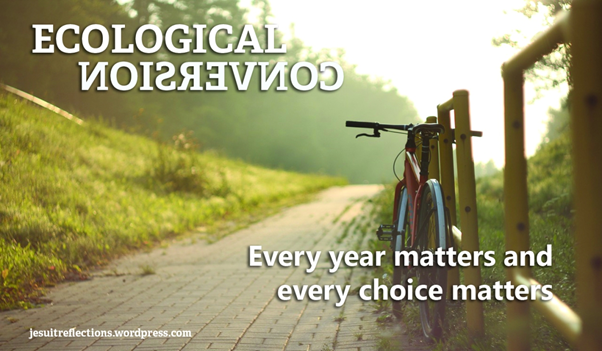
Would you believe it? Celebrating the Season of Creation is the Catholic thing to do” !!!
“Social problems must be addressed by community networks and not simply by the sum of individual good deeds…. The ecological conversion needed to bring about lasting change is also a community conversion.” [LS 29]
Aren’t you being a bit, errrhm, bigoted?” “That’s being sectarian at the very least!”
“The Season of Creation is an ecumenical month of action and prayer for our common home – it’s not for Catholics only!”
If you retorted that the ‘Season of Creation is an ecumenical month of action and prayer for our common home – it’s not for Catholics only’, you would be quite right; but, you might be missing out on one small but important fact. On its website the Laudato Si Movement explains the connection between the Season of Creation and the history of Catholic social tradition: “Taking action during the Season of Creation is living out our Catholic faith. The Church, following the teachings of Jesus, from the Social Doctrine, throughout time has exhorted believers to work for the common good, which requires dignifying life in all its forms, caring for the common home, committing to more just, supportive, fraternal and peaceful societies, among other fundamental aspects to achieve what Pope Francis calls integral ecology in Laudato Si’”.
And indeed, in November 1991 already the United States Catholic Conference produced the document entitled “Renewing the Earth”. An Invitation to Reflection and Action on Environment in Light of Catholic Social Teaching https://www.usccb.org/resources/renewing-earth from which Section 4, para. C is partially quoted: “Christian love forbids choosing between people and the planet. It urges us to work for an equitable and sustainable future in which all peoples can share in the bounty of the earth and in which the earth itself is protected from predatory use.”

